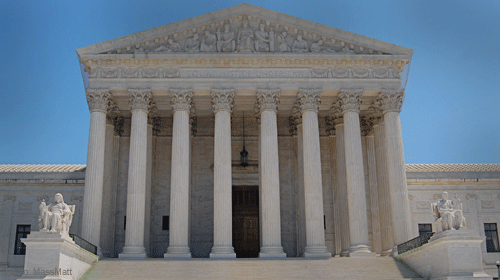Government Engages In Shell Game To Avoid Review Of Warrantless Wiretapping


Less than a year ago, the government convinced the Supreme Court to dismiss the ACLU's constitutional challenge to the FISA Amendments Act (FAA)—the controversial warrantless wiretapping statute that is the legal basis for the PRISM program—because our clients couldn't prove that they had been monitored under it. The government repeatedly assured the court that such a restrictive view of who could challenge the law would not forever prevent court review, because criminal defendants who were prosecuted based on evidence obtained under the FAA would be informed of such and would then be able to challenge the statute. Based in part on this assurance, the Supreme Court in February of this year dismissed the case, Clapper v. Amnesty, in a 5–4 vote.
But now that the case is closed, we are learning that the government's assurances that it would notify criminal defendants of its reliance on surveillance under the FAA were not what they seemed. Here's one example of the government unequivocally assuring the Supreme Court, in its brief, that criminal defendants would receive notice of FAA surveillance and an opportunity to challenge the statute:
If the government intends to use or disclose any information obtained or derived from its acquisition of a person's communications under [the FAA] in judicial or administrative proceedings against that person, it must provide advance notice of its intent to the tribunal and the person, whether or not the person was targeted for surveillance under [the FAA].
In response to questions from the justices at oral argument, the government reiterated this position. Never mind that the government had not notified one criminal defendant about this type of evidence in the five years since the warrantless wiretapping program was written into law.
Ultimately, the Supreme Court accepted the government's position—but, using language almost identical to that in the brief, it highlighted the government's duty to "provide advance notice of its intent" to "use or disclose information obtained or derived" from FAA surveillance. The court plainly took the government's representations at face value, and it concluded that a criminal proceeding would offer an alternative avenue for testing the legality of the FAA's warrantless wiretapping program.
What we have learned since the Clapper decision, however, has revealed a yawning chasm between the government's words and actions. Faced with recent revelations about the FAA surveillance program, intelligence officials have raced to defend the controversial law. And, in doing so, they have touted at least four cases where warrantless FAA surveillance was purportedly critical to preempting terrorist plots. Yet not one of the defendants in these prosecutions was told that the government's evidence was obtained from FAA surveillance, and thus they had no opportunity to challenge the statute. This fact runs directly contrary to the arguments that lawyers for the government paraded before the Supreme Court just last fall.
Indeed, the government has openly departed from its previous position. Criminal defendants in Chicago and Florida have filed motions seeking to compel the government to provide notice of its intent to rely on evidence obtained from warrantless wiretapping under the FAA, yet the government is now arguing that it has no obligation to do so. This amounts to a remarkable about-face. These particular defendants have particularly good reason to ask whether evidence against them was obtained under the FAA: In December, Senator Feinstein referenced their cases in testimony urging Congress to reauthorize the FAA's surveillance program. Despite this testimony, the government is fighting the defendants' efforts to understand where the evidence against them has come from, and even told the court that it has no obligation to tell criminal defendants like those in the Florida case whether its evidence came from a warrantless interception of communications under the FAA or from more traditional foreign intelligence surveillance.
The distinction is crucially important, because without adequate notice defendants may never know they were subjected to warrantless wiretapping. And, without that, despite the government's guarantees to the Supreme Court, a defendant would have no basis to bring the type of constitutional challenge that would finally test the legality of the government's warrantless surveillance.
Judicial review is precisely what the government hopes to avoid by engaging in this type of shell game. But the government should be held to the representations it made in the Supreme Court. In particular, it should not be permitted to insulate this massive surveillance program from challenge by perpetually keeping the targets of its surveillance secret—especially where it uses the resulting evidence against those individuals in court. Notice is an essential first step in ensuring that the FAA is subject to judicial review. Without it, we may never get a definitive ruling on whether the NSA's mass surveillance of our internet and telephone communications complies with the Constitution.
Learn more about warrantless wiretapping and other civil liberties issues: Sign up for breaking news alerts, follow us on Twitter, and like us on Facebook.

